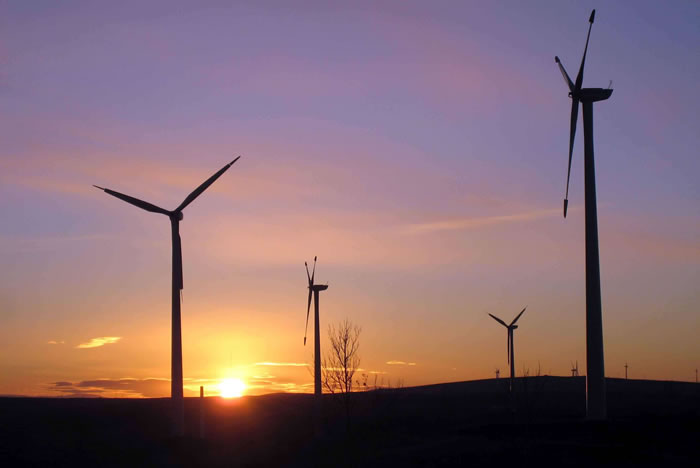Solutions
Cranes for Wind Power Industry
Lifting Capacity: 1-100 ton
Span: 7.5-31.5 m
Lifting Height: 6/9/12/18 m
Working Class: 1m,2m,3m,4m
Note: We can design and manufacture the crane according your requirments and working conditions.
In recent years, the global environmental protection for the new energy industry has increased investment, especially the wind power industry has been developed by leaps and bounds. Wind power equipment has a large weight, large size characteristics, requiring heavy load cranes (currently the largest available to 100 tons), lifting and running a smooth and reliable, and according to the actual lifting needs of the scene to provide stand-alone, multi-machine synchronous lift Hanging, flip the program, as well as with the lifting of the use of a variety of special spreader.
Cranes play a crucial role in the wind power industry, particularly in the installation, maintenance of wind turbines. Here are some key aspects related to cranes in the wind power sector:
1. Installation of Wind Turbines:
- Heavy Lift Cranes: Wind turbines consist of large and heavy components such as tower sections, nacelles, and blades. Heavy lift cranes are essential for lifting and installing these components.
- Specialized Offshore Cranes: In offshore wind farms, cranes mounted on installation vessels are employed to install turbines at sea. These cranes are designed to handle the challenges of working in marine environments.
2. Safety Considerations:
- Wind Conditions: Cranes used in the wind power industry need to consider the wind conditions at the installation site. Wind speed and stability are critical factors in crane operations.
- Training and Certification: Operators of wind turbine cranes must undergo specialized training and certification to ensure safe and efficient operations.
3. Technological Advancements:
- Telematics and Automation: Some modern cranes are equipped with telematics systems and automation features, enhancing safety and operational efficiency.
- Remote Operation: Remote-controlled cranes or those with semi-automated features can be advantageous in challenging environments, improving safety for operators.
4. Transportation of Components: In addition to lifting and installation, cranes also play a role in the transportation of wind turbine components. Transport cranes are used to load and unload turbine parts from trucks or ships, facilitating the logistics of moving components to and from the construction site.
5. Turbine Upgrades and Retrofits: As wind turbine technology advances, there may be instances where existing turbines require upgrades or retrofits. Cranes are essential for lifting and replacing components to enhance the efficiency and performance of turbines.
6. Environmental Considerations: Offshore wind farms often operate in environmentally sensitive areas. Specialized cranes designed with reduced environmental impact, such as those with low emissions and noise levels, are preferred to minimize ecological disruption.
7. Innovations in Crane Technology: Ongoing advancements in crane technology include the development of lighter yet more powerful materials, innovative designs, and improved safety features. These innovations contribute to more efficient and sustainable operations in the wind power industry.
8. Multi-Crane Coordination: Large wind farms may require the simultaneous use of multiple cranes for installation or maintenance tasks. Coordinating the movements of multiple cranes safely and efficiently is a critical aspect of project planning.
9. Data and Analytics Integration: Some modern cranes are equipped with sensors and data analytics capabilities. This integration allows for real-time monitoring of crane performance, enabling predictive maintenance and enhancing overall operational efficiency.
10. Global Market Trends: The global market for cranes in the wind power industry is influenced by trends such as the expansion of offshore wind farms, the growth of the wind energy sector, and increased emphasis on sustainable practices. Manufacturers are responding with the development of specialized crane solutions tailored to these trends.
11. Regulatory Compliance: Cranes used in the wind power industry must comply with safety and environmental regulations. Adherence to standards and regulations ensures that crane operations are conducted safely and responsibly.
12. Cost and Efficiency Optimization: Project developers and operators in the wind power industry aim to optimize costs and efficiency. This includes selecting the right type and size of cranes for specific tasks, considering factors such as reach, lifting capacity, and operational costs.
13. Collaboration with Renewable Energy Companies: Crane manufacturers often collaborate with renewable energy companies to tailor crane solutions to the specific needs of wind farms. This collaboration helps address industry challenges and drive innovation in crane technology.
The intersection of crane technology and the wind power industry continues to evolve, with a focus on safety, efficiency, and sustainability. As the demand for clean energy grows, cranes will remain integral to the success of wind energy projects worldwide.
